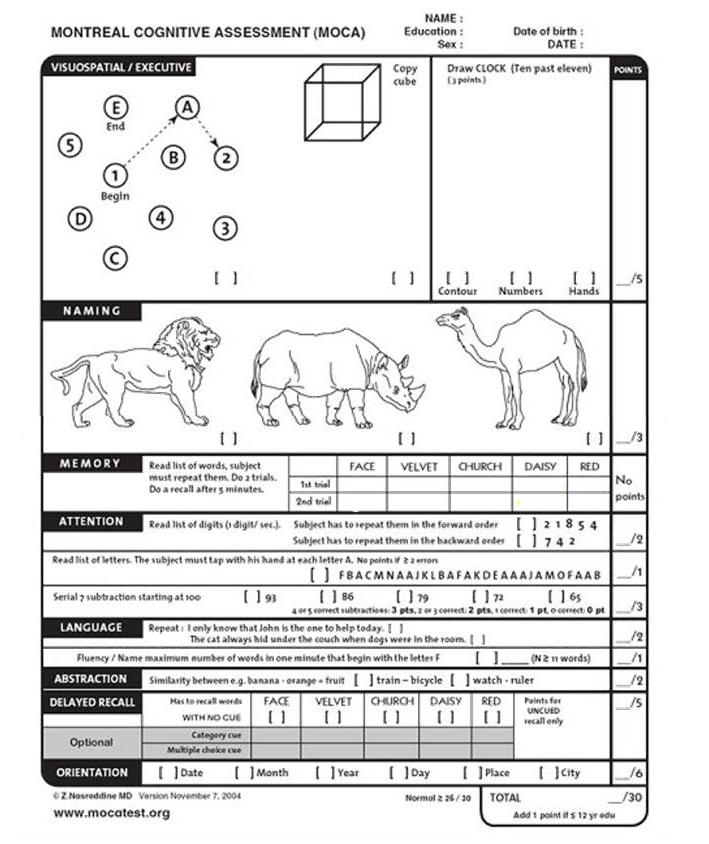Hey there, my fellow humor enthusiasts! Do you ever wonder if your brain is functioning at its best? Well, fear not because there’s a test for that! And it even comes with a fancy name - the Montreal Cognitive Assessment (MoCA).
MoCA, what’s that?

But how does it work?
Well, funny you ask. The MoCA test has several categories, each assessing different aspects of cognitive function. These categories include visual-spatial abilities, attention, executive function, language, and memory. There are also tasks that evaluate orientation and abstraction skills. Sounds pretty fancy, huh?
Don’t worry, it’s not rocket science
Now, don’t let those big words scare you. The tasks in MoCA are relatively simple, but they challenge your cognitive function in unique ways. For example, one task asks you to draw a clock with a specific time - sounds easy, right? But wait, there’s a catch - the time is different for each person! It’s all about attention to detail.
Your score matters
After completing the test, you will receive a score out of 30. A score of 26 or higher is considered “normal,” while scores below that may indicate some level of cognitive impairment. Of course, it’s important to remember that the MoCA test is just one part of a comprehensive cognitive assessment, and should be used in conjunction with other evaluations performed by a trained clinician.
Why take the MoCA test?
If you have Parkinson’s Disease, taking the MoCA test can give you and your healthcare provider a better understanding of your cognitive function. It can also help identify areas where you may need extra support and interventions, or where adjustments to your medications or therapy may be necessary. Plus, it’s always fun to challenge your brain!
So, what are you waiting for?
Don’t be a chicken, give the MoCA test a try! It’s an easy way to test your cognitive abilities, and who knows - you might even surprise yourself. And if your score isn’t as high as you’d like, remember that it’s just a number. There are plenty of ways to support cognitive health, from exercising your brain with puzzles and games to eating a nutritious diet and staying active. So, go ahead and take that test - your brain will thank you!
All the best,
Your favorite humorist